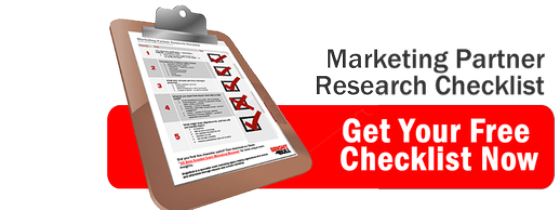We thought we'd get together a simple guide to help event marketers out there looking to boost their marketing exposure at no extra cost. That's most of you right?
We all want to see increased event attendance and lower costs, so keep reading and you'll find some great ways of identifying marketing and media partners to get you on your way to a brilliant campaign.
There's an abundance of ways to find additional sources to promote your next event and exponentially multiply your marketing reach by working with other organisations that share similar target markets.
Here is how you can easily spot them and why it is so important to have them involved in your event.
Your event producer
Most times the event producers are very well informed about what's widely read in the industry through their research calls with potential speakers but also through their own online research. Why double the efforts - make sure you tap into their findings. If they haven't gathering these sources for you and added to the marketing brief, a good tip is to ask them to check their "History" button on their browsers and you will easily spot the websites they visited the most and therefore the likely sources to approach for partnerships. Generally there will be links to magazines, associations, research companies etc.
Your sales teams
Similar to your producers, they are in direct contact with the target market and they have very valuable insights gathered from their conversations with key senior people. Eager sales guys will be reading around the event topic so may have already done some media research. Ask away.
Production team
From their research they should have spoken with the main thought leaders, analysts, influencers and helpful sponsors. They may have particularly friendly contacts that may be happy to connect you with media organisations and key influencers.
Competitive events
Check out competitive event brochures and websites. If they've partnered on an event before, they're open and likely to partner again. So a great way of helping you to prioritise your top 5.
Set up a "google alert" for your most relevant keywords and you will get a daily notification with the websites and sources that publish news with your particular keyword.
Tip: You can select only sources for news or blogs and exclude other types of websites that are not relevant
Groups on LinkedIn:
1. These days you could market your whole event by only using LinkedIn. Groups are one of the best possible ways to reach your particular target market in an effortless manner.
Tip: Instead of posting your content in the group, try speaking to the group owner and get him or her to endorse your event or send an announcement to the whole group. In addition announcements will be sent via email to the users so you can get a double hit there
2. You will be able to identify specific individuals that post more regularly than others within the groups. The chances are that these guys are highly influential. They may be analysts/consultants that have some level of influence as well as a customer base that can be highly relevant. Connect with them and tap into their connections. You might even find yourself a potential sponsor!
In a similar way to the google alerts, you can search for relevant "#hashtags" to your event. You will easily start to see who the big influencers are by the number of their followers and frequency of their tweets. A direct message via twitter will engage with them and usually they will happily promote your event, so long as it's relevant to their followers
Tip: If you use tweetdeck you will be able to create multiple searches in one go
The search function isn't as good as the others but you can find some groups by entering keywords in the search pane (in a personal account not a "page" account). As well as the usual suspects (magazines etc) you may come across some independent communities around your topic or event theme. Connect and direct message them.
Another great way to find groups is by checking out what the industry magazines/potential media partners have liked. A great headstart in finding like-minded groups and pages.
Google+
Will work in the same way as twitter as you can also search by specific keywords. Connect, engage and explore ways to share and exchange content.
Why is it so important to have media partnerships in your event marketing strategy?
- They have similar objectives to yours
- They have a reachable community and contacts not available elsewhere
- It won't cost you additional money
- Your event will gain additional gravitas and credibility
- It is a credible source for good quality inbound links
- They can give you quality content (and vice versa) to drive more traffic to your website
Now you have some useful tips to make the most of what's available within your company and out there in the digital sphere, it's time to get going and find some new partnerships for your event!
Do you have any particular methods that work well for you? We believe the key to securing partnerships is knowing what organisations will want from a deal, and how you can help them achieve their goals. Download your free research checklist today to ensure you've covered all bases before you make a proposal.
Image credit: Mike McCune
